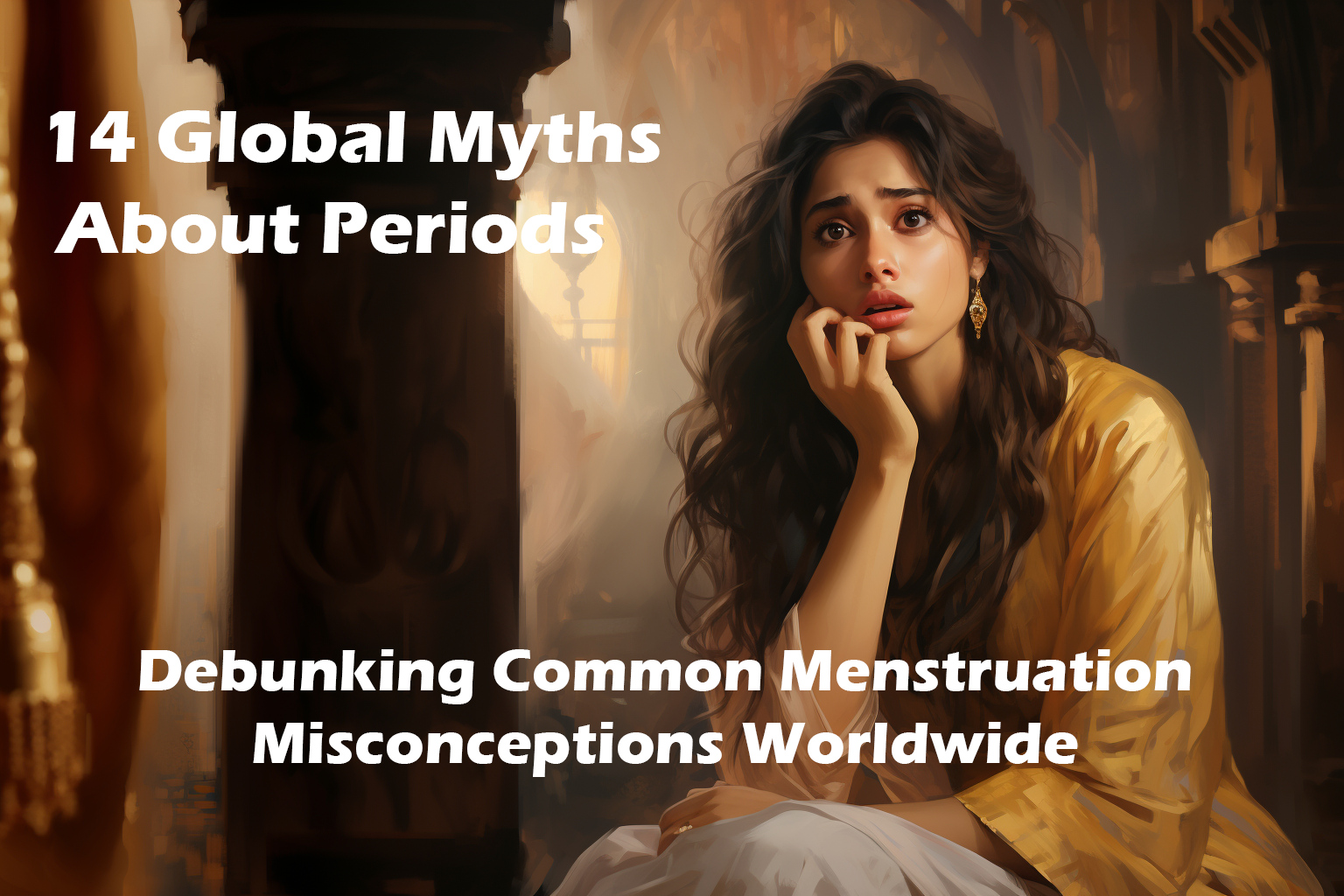If you’ve ever sought treatment for certain hormonal imbalances or conditions relating to your menstrual cycle or pregnancy, you may have come across a drug named Duphaston. Known in the medical world by its scientific name, Dydrogesterone, Duphaston is a common medication in the field of gynecology. However, to the average person, what Duphaston does and how it affects the body might still be a mystery. Today, we’re here to unpack this medication in a way that everyone can understand. specially about Duphaston during first trimester pregnancy
Understanding Duphaston: What is it?
In the simplest terms, Duphaston is a type of medication known as a progestogen, which means it mimics the natural hormone progesterone. For women, progesterone plays a crucial role in the menstrual cycle and during the stages of pregnancy.
Sometimes, a woman’s body may not produce enough progesterone, leading to various health issues. This is where Duphaston comes in. Duphaston acts like a supplement to your body’s natural progesterone, helping restore hormonal balance.
Uses of Duphaston
Duphaston is used to treat a variety of conditions. Some of the most common uses include:
- Menstrual disorders: Duphaston can help regulate irregular periods. It can also relieve the symptoms of painful periods, heavy bleeding, and premenstrual syndrome (PMS).
- Infertility: In cases where infertility is due to a lack of sufficient progesterone, Duphaston is used to correct this imbalance.
- Endometriosis: This is a condition where tissue similar to the lining of the uterus is found outside the uterus, causing pain and often fertility issues. Duphaston is used as part of the treatment plan for endometriosis.
- Miscarriage: Duphaston is often used in early pregnancy to help prevent miscarriage, especially in women who have a history of recurrent miscarriages. It supports the body’s natural progesterone production, crucial for maintaining a healthy pregnancy.
How Does Duphaston Work?
Duphaston works by supplementing your body’s natural progesterone. It helps regulate the balance and effects of estrogen, another hormone in your body.
In the menstrual cycle, progesterone helps prepare your womb for pregnancy after an egg has been fertilized. If the egg isn’t fertilized, progesterone levels drop, and menstruation occurs. By supplementing progesterone, Duphaston helps ensure these processes occur as they should.
During early stages of pregnancy, progesterone is vital in preparing the womb to receive the fertilized egg and maintain pregnancy. By boosting progesterone levels, Duphaston can help support this crucial phase of pregnancy.
Potential Side Effects of Duphaston
As with any medication, Duphaston can have side effects. Common side effects include headaches, nausea, breast tenderness, or bloating. Rarely, some people may experience more severe side effects, such as jaundice, migraines, or allergic reactions. If you experience any unusual symptoms while taking Duphaston, it’s essential to consult with your healthcare provider.
Concluding Thoughts
Duphaston, in essence, is a helper to your body’s natural hormones. Whether it’s regulating your menstrual cycle or aiding in early pregnancy, Duphaston offers support where your body might need a little extra. As always, remember that while it’s essential to understand your medication, always consult with a healthcare provider before starting any new medication.
Frequently Asked Questions- about Duphaston
- Can Duphaston prevent a miscarriage?
In essence, Duphaston is a support system for pregnancy, particularly during the early stages when progesterone is vital. While it can support the body in maintaining a pregnancy, it’s important to note that its ability to prevent miscarriages is still under scientific scrutiny and discussion.
- Can I get pregnant after taking Duphaston?
Yes, getting pregnant after taking Duphaston is possible. The drug helps manage conditions like infertility stemming from progesterone deficiency. But remember, Duphaston isn’t a magic potion for pregnancy; factors like ovulation, sperm quality, and overall health also come into play.
- Can I take Duphaston during my period?
Generally, Duphaston isn’t taken during periods. It’s usually consumed in the second half of your menstrual cycle, after ovulation. Your healthcare provider will guide you on when best to take this medication.
- Does Duphaston cause bleeding during pregnancy?
Bleeding during pregnancy always warrants medical attention, but typically, Duphaston is not a culprit for causing such bleeding. Yet, individual reactions to medicines vary, so any unexpected symptoms should be reported to your doctor.
- Should I take Duphaston during the first trimester of pregnancy?
It’s common for Duphaston to be prescribed during early pregnancy to support natural progesterone production. However, it’s paramount that you take this medication under the strict supervision of a healthcare provider.
- Why am I experiencing heavy bleeding after Duphaston?
Experiencing heavy bleeding post-Duphaston isn’t typical. If you face this, reach out to your doctor right away, as it might indicate an underlying health issue.
- How should I take Duphaston for period regulation?
The ‘how’ of taking Duphaston hinges on your specific health conditions and doctor’s advice. Generally, doctors prescribe a regimen of Duphaston to be followed during certain days of your menstrual cycle.
- How long until periods come after Duphaston?
Most women experience menstruation within 2-3 days after stopping Duphaston, but this can differ based on individual body responses.
- Can periods occur while taking Duphaston?
Typically, periods occur after you stop taking Duphaston. However, if you notice bleeding while on the medication, contact your doctor.
- Why am I not getting periods after taking Duphaston?
If more than 10 days pass post-Duphaston without a period, reach out to your doctor. The reason could be anything from pregnancy to an underlying medical condition.
- How does Duphaston influence my periods?
Duphaston helps balance your menstrual cycle by compensating for progesterone deficiency, leading to more regular periods and alleviating associated discomforts.
- When should I avoid Duphaston?
Avoid Duphaston if you have known or suspected progesterone-sensitive tumors, unidentified vaginal bleeding, or known allergies to any of Duphaston’s components. It’s usually avoided in early pregnancy unless specifically directed by a doctor.
- What is withdrawal bleeding after Duphaston?
Withdrawal bleeding, a common event post-Duphaston, typically isn’t a cause for concern. However, if you notice unusually heavy or extended bleeding, seek medical help.
In a nutshell, Duphaston can play a significant role in managing hormonal issues. As with all medication, it should only be taken under healthcare supervision, considering its impacts and potential side effects.
- Why am I not getting periods after taking Duphaston?
While periods usually occur within a few days of stopping Duphaston, sometimes, they may be delayed or even missed. This can be due to several reasons. One could be pregnancy, which is why it’s recommended to take a pregnancy test if you miss your period after taking Duphaston. Another reason could be an underlying hormonal issue or other medical condition. Furthermore, stress, significant weight fluctuations, or even certain medications can affect your menstrual cycle. If you’ve missed your period after taking Duphaston, it’s crucial to consult with your healthcare provider to determine the underlying cause.
- डुप्स्टन लेने के बाद मुझे पीरियड्स क्यों नहीं हो रहे हैं?
यद्यपि डुप्स्टन बंद करने के कुछ दिनों के भीतर ही मासिक धर्म आना शुरू हो जाता है, लेकिन कभी-कभी, वे देरी से आ सकते हैं या यहां तक कि छूट भी सकते हैं। इसके कई कारण हो सकते हैं। एक कारण गर्भावस्था हो सकती है, इसलिए यदि आप डुप्स्टन लेने के बाद अपने मासिक धर्म यादीं मिस करते हैं, तो गर्भावस्था की जांच करने की सलाह दी जाती है। दूसरा कारण किसी अन्य हार्मोन विषयक या चिकित्सीय समस्या हो सकती है। इसके अलावा, तनाव, भारी वजन के परिवर्तन, या यहां तक कि कुछ दवाएं भी आपके मासिक धर्म को प्रभावित कर सकती हैं। यदि आपने डुप्स्टन लेने के बाद अपने मासिक धर्म छूटे हैं, तो मूल कारण का पता लगाने के लिए अपने स्वास्थ्य प्रदाता से परामर्श करना महत्वपूर्ण है।
- Can periods start while taking Duphaston?
Normally, the menstrual cycle begins after the discontinuation of Duphaston. However, in certain cases, spotting or light bleeding may occur while taking the medication. This could be due to multiple factors including the dose of Duphaston, your body’s reaction to the medication, or other underlying health conditions. If you experience bleeding while still on Duphaston, it’s essential to contact your healthcare provider for advice.
- How long should I take Duphaston to regulate my period?
The length of treatment with Duphaston to regulate menstrual periods can vary greatly depending on individual needs. It is typically prescribed for a portion of the menstrual cycle (for example, from day 16 to day 25). Your healthcare provider will specify the duration based on your specific circumstances. Remember, it’s important to follow your healthcare provider’s instructions accurately and consistently for best results.
- How long should I take Duphaston for PCOS?
The duration for which Duphaston is prescribed for Polycystic Ovary Syndrome (PCOS) varies depending on the individual case and the treatment plan. PCOS is a complex condition, and treatment often involves managing individual symptoms and improving overall health, rather than just using medication. Therefore, your doctor will likely discuss a range of treatment options, potentially including lifestyle changes, alongside medication such as Duphaston.
- Is Duphaston good for hormonal imbalance?
Duphaston is used to treat certain hormonal imbalances, especially those related to progesterone deficiency. Progesterone is crucial in the menstrual cycle and pregnancy, and a deficiency can lead to a variety of issues. Duphaston acts as a synthetic version of progesterone, helping to restore the balance. It’s important to note that while Duphaston can help with these imbalances, it’s just one part of overall hormonal health, and a holistic approach is often needed.
- Does Duphaston improve egg quality?
Duphaston’s primary role is to act as a progestogen, mimicking the role of progesterone in the body. It does not directly impact egg quality. However, by creating a favorable environment in the uterus, it supports the implantation of a fertilized egg and the maintenance of early pregnancy, indirectly supporting overall reproductive health.
- What is the role of Duphaston in periods?
In the menstrual cycle, Duphaston plays a role in helping regulate periods, especially for those with irregular cycles due to progesterone deficiency. It prepares the uterus for potential pregnancy after ovulation, and if pregnancy does not occur, the drop in progesterone (and thus Duphaston) triggers the shedding of the uterine lining in the form of a menstrual period.
- What are the symptoms of pregnancy after taking Duphaston?
The symptoms of pregnancy after taking Duphaston would be similar to the typical early signs of pregnancy. These might include missed periods, nausea, vomiting, fatigue, tender breasts, frequent urination, and increased sensitivity to smells. If you experience these symptoms after taking Duphaston, consider taking a home pregnancy test or consult your healthcare provider.
- What effect does Duphaston have on the uterus?
Duphaston helps prepare the uterus for pregnancy. It mimics the natural hormone progesterone, which prepares the endometrium (the lining of the uterus) for implantation of a fertilized egg and helps maintain the endometrium throughout early pregnancy. If implantation does not occur, stopping Duphaston triggers the shedding of the endometrium, resulting in a period.
- What is the success rate of Duphaston in pregnancy?
It’s difficult to determine a specific “success rate” for Duphaston in pregnancy, as its use and effectiveness can greatly depend on individual circumstances. Duphaston is not a fertility drug per se; instead, it’s used to help support early pregnancy in those who may be at risk for miscarriage due to progesterone deficiency. It’s also used to treat other conditions associated with low progesterone levels. Always discuss with your healthcare provider to understand the potential benefits and risks.
- Who should not take Duphaston?
Individuals who are allergic to dydrogesterone or any other ingredient in Duphaston should not take it. Additionally, those with a history of thromboembolic disorders, severe liver disease, unexplained vaginal bleeding, or known or suspected hormone-related cancer should avoid Duphaston. Always discuss your full medical history with your healthcare provider before starting a new medication.
- When should I take Duphaston to conceive?
Duphaston is usually taken during the second half of the menstrual cycle, after ovulation has occurred. This is the time when progesterone (which Duphaston mimics) naturally rises in the body to prepare the uterus for potential pregnancy. However, the exact timing and dosage will depend on individual circumstances and should be guided by your healthcare provider.
- Is there withdrawal bleeding from Duphaston?
Yes, withdrawal bleeding can occur when you stop taking Duphaston. This typically happens a few days after the last dose, as the drop in progesterone levels triggers the shedding of the uterine lining, leading to a menstrual period.
- When do you bleed after Duphaston?
Most people start to bleed a few days after stopping Duphaston, but this can vary between individuals. If you don’t experience any bleeding within 10 days of stopping the medication, you should consult with your healthcare provider.
- डुप्स्टन के बाद आपको ब्लीडिंग कब होती है?
अधिकांश लोग डुप्स्टन बंद करने के कुछ दिनों के बाद ब्लीडिंग शुरू करते हैं, लेकिन यह व्यक्ति के बीच अलग-अलग हो सकता है। यदि आप डवाई बंद करने के 10 दिनों के भीतर कोई ब्लीडिंग नहीं अनुभव करते हैं, तो आपको अपने स्वास्थ्य प्रदाता से परामर्श करना चाहिए।
- What happens after taking Duphaston?
After taking Duphaston, your body’s progesterone levels are supplemented, which helps to support the second half of your menstrual cycle and prepares the uterus for a potential pregnancy. If a pregnancy does not occur, stopping Duphaston leads to a drop in progesterone levels and triggers a period.
- What are the symptoms of pregnancy after taking Duphaston?
The symptoms of pregnancy after taking Duphaston are similar to typical early pregnancy signs and might include missed periods, nausea, vomiting, fatigue, tender breasts, frequent urination, and increased sensitivity to smells.
- Can I get periods while taking Duphaston?
Typically, periods start a few days after stopping Duphaston. However, in some cases, spotting or light bleeding may occur while taking Duphaston. If this happens, it’s recommended to consult with your healthcare provider.
- What are the rules for taking Duphaston?
Duphaston should be taken as prescribed by your healthcare provider, as dosage and timing can depend on individual circumstances. It’s typically taken during the second half of the menstrual cycle. Never take more than the prescribed dose, and if you miss a dose, do not double up to compensate.
- How do you regulate your period with Duphaston?
To regulate your period with Duphaston, you need to take it as prescribed by your healthcare provider. Typically, it’s taken during the second half of the menstrual cycle, which can help support a regular period if your cycles are irregular due to progesterone deficiency.
- Will progesterone stop my period from coming?
High levels of progesterone (such as when you’re taking a progesterone supplement like Duphaston) can actually prevent your period from starting. This is because the shedding of the uterine lining, which results in a period, is triggered by a drop in progesterone levels. Once you stop taking the progesterone supplement, this triggers a period.
- What happens if you don’t get your period after taking progesterone?
If you don’t get your period within 10 days of stopping progesterone, it may indicate a potential issue such as pregnancy or a hormonal imbalance. It’s recommended to consult with your healthcare provider in this case.
- How do you induce withdrawal bleeding?
Withdrawal bleeding is typically induced by stopping a hormone medication like Duphaston or a combined oral contraceptive. The drop in hormone levels triggers the shedding of the uterine lining, leading to a period.
- What hormone stops menstrual bleeding?
Progesterone helps to maintain the uterine lining during the second half of the menstrual cycle, preventing menstrual bleeding. When progesterone levels drop at the end of the cycle (if pregnancy does not occur), this triggers menstrual bleeding.
- Will I get my period on progesterone?
While on progesterone, you typically will not get your period. It’s the drop in progesterone levels that triggers a period, so this usually happens a few days after you stop taking progesterone.
- What is the reason for less bleeding during periods?
Light or scanty periods can be due to various factors, including hormonal imbalances, stress, significant weight loss or gain, eating disorders, strenuous exercise, and certain medical conditions like PCOS or thyroid disorders. If you’re experiencing consistently light periods, it’s recommended to consult with your healthcare provider.
- What is progesterone withdrawal bleeding?
Progesterone withdrawal bleeding is the bleeding that occurs after stopping progesterone. This is essentially a period, triggered by the drop in progesterone levels which leads to the shedding of the uterine lining.
- Is withdrawal bleeding compulsory?
Withdrawal bleeding is a common and expected occurrence after stopping progesterone, but not everyone will experience it. For example, if you become pregnant while taking progesterone, you will not experience withdrawal bleeding. If you do not experience withdrawal bleeding within 10 days of stopping progesterone and you are not pregnant, it’s recommended to consult with your healthcare provider.
- Do you always bleed when taking progesterone?
Bleeding while taking progesterone is not typical and could indicate an issue. It’s more common to bleed a few days after stopping progesterone. If you’re experiencing bleeding while taking progesterone, it’s recommended to consult with your healthcare provider.
- What are the symptoms of progesterone withdrawal?
Symptoms of progesterone withdrawal can include menstrual bleeding, mood changes, headaches, and in severe cases, hot flashes and other symptoms similar to menopause. This is because progesterone has various effects on the body beyond just maintaining the uterine lining, including mood regulation and temperature control.
- Why do doctors recommend Duphaston tablets?
Doctors often prescribe Duphaston (Dydrogesterone) to treat a range of conditions related to progesterone deficiency. These conditions may include irregular menstrual cycles, endometriosis, infertility due to luteal insufficiency, or the prevention of miscarriage in women with low progesterone levels. Duphaston acts similarly to natural progesterone but has the advantage of better absorption and longer duration of action.
- What happens after taking Duphaston?
After taking Duphaston, the dydrogesterone it contains, which is similar to the natural hormone progesterone, helps to regulate the balance of hormones in the female body. It helps prepare the uterus for implantation if an egg has been fertilized and can support early pregnancy. It also assists in the regulation of the menstrual cycle and the treatment of other conditions linked to progesterone deficiency.
- What happens when you stop taking Duphaston?
When you stop taking Duphaston, especially if taken during the second half of your menstrual cycle, the drop in progesterone levels will usually trigger the shedding of the uterine lining, resulting in a menstrual period. If you were taking Duphaston for pregnancy support and a pregnancy occurred, stopping it should be under the guidance of your healthcare provider, who may advise you to continue until a certain point in the pregnancy.
- What is the warning of Duphaston?
Duphaston should not be taken by people with a known allergy to dydrogesterone or any other ingredient in the medication. It should also be avoided by individuals with a history of blood clots, severe liver disease, unexplained vaginal bleeding, or known or suspected hormone-related cancer. Always provide your healthcare provider with a full medical history before starting a new medication.
- How many weeks should I take Duphaston?
The duration for which Duphaston should be taken varies depending on the condition it’s being used to treat. For instance, if it’s being used to support early pregnancy in those with a history of miscarriage, it may be taken for several weeks into the pregnancy. However, if it’s being used to regulate menstrual cycles, it may be taken for a shorter duration each cycle. The precise duration should be determined by your healthcare provider based on your individual needs. Always follow your healthcare provider’s instructions regarding the duration and dose of medication.
- Can Duphaston affect baby?
Duphaston is a synthetic form of progesterone, a hormone that naturally occurs in the body and is crucial for maintaining a healthy pregnancy. In many cases, Duphaston is prescribed to support early pregnancy, especially in women who have had previous miscarriages or who have a progesterone deficiency.
There is no evidence to suggest that use of progesterone or synthetic forms like Duphaston cause harm to the baby when used appropriately. Progesterone is naturally produced by the body during pregnancy and is critical for maintaining the uterine lining and supporting fetal development.
However, as with any medication, Duphaston should only be taken under the supervision of a healthcare provider, who can consider the potential benefits and risks in each individual’s case. If you’re pregnant or trying to become pregnant and have questions or concerns about any medications, it’s always best to consult with your healthcare provider.
Important Warning:
This article is intended to provide a general understanding of Duphaston and its uses. While every effort has been made to ensure the information presented is accurate and up-to-date as of the publication date, it may not apply to your specific circumstances and should not be used as a substitute for professional medical advice.
Before starting any new medication, including Duphaston, always consult with a healthcare provider. They can provide the most accurate and personalized advice based on your health history and current conditions.
Do not ignore or delay seeking professional medical advice because of something you have read within this article. If you are experiencing a medical emergency, please contact a healthcare provider immediately. Remember, every individual is unique, and treatment effectiveness, as well as side effects, can vary from person to person.





One thought on “Duphaston during first trimester pregnancy- 50 Queries answered”